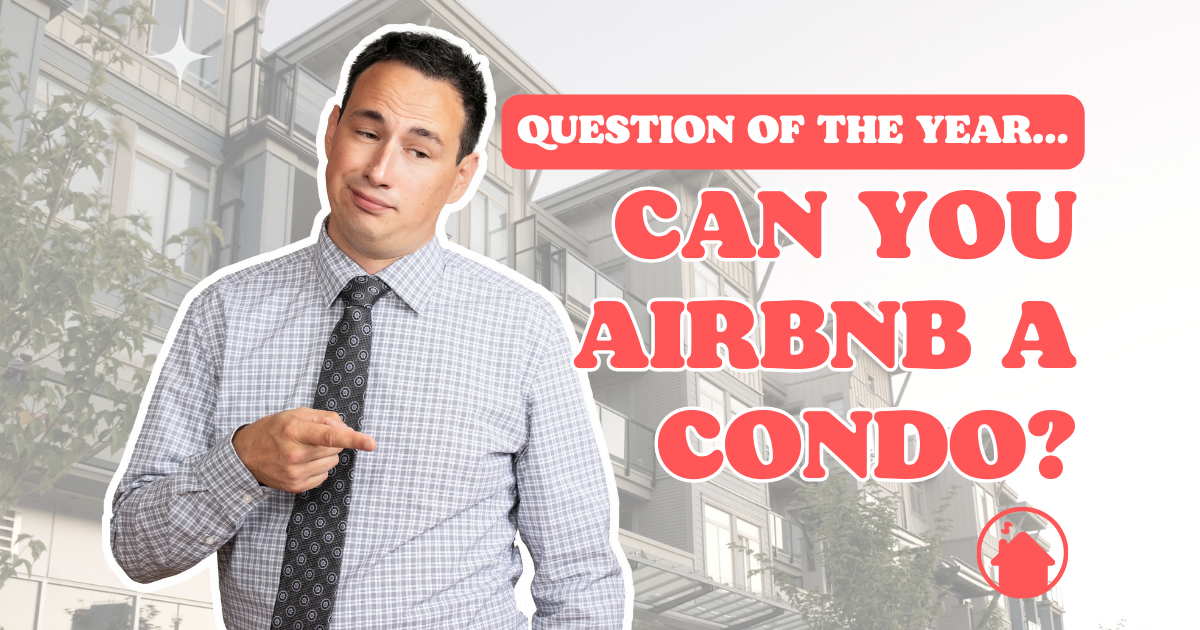It seems like every time we have a client interested in buying a condo they ask, can you Airbnb the condo? In the realm of real estate, short-term rentals have gained significant popularity, especially through platforms like Airbnb. However, when it comes to renting a condo for short stays, there are certain considerations and regulations that potential hosts and investors need to be aware of. In this article, we will delve into the question of whether you can short-term rent a condo or not.
Homeowners Association (HOA) Rules
The primary factor that determines whether you can short-term rent a condo is the set of rules and regulations imposed by the homeowners association (HOA) governing the condominium. As we discuss in our video below, most HOAs tend to frown upon Airbnb and other short-term rental arrangements.
While there may be some exceptions where certain HOAs allow short-term rentals, they often come with a minimum rental duration of 30 days or more. Therefore, it is crucial to thoroughly review the HOA rules before considering short-term renting a condo. Additionally, it’s worth mentioning that the HOA rules can vary from one condominium to another, so it’s important to investigate the specific regulations governing the property in question.
Market Opportunities for Longer Stays
Although short-term rentals may face restrictions within many HOAs, there is still a market for longer stays of 30 days or more. For instance, traveling nurses and individuals in need of temporary accommodation often seek out such rentals. While these opportunities exist, it is essential to understand the specific demands of the target market and identify condos that cater to their needs.
City Regulations
In addition to HOA rules, prospective hosts and investors must also consider the city regulations regarding short-term rentals. The city of Portland, for example, requires property owners to occupy the premises for approximately nine months of the year if they intend to rent it out. This regulation aims to discourage individuals from purchasing condos solely for the purpose of running them as short-term rentals or “mini hotels.” Violating these regulations may result in legal consequences, so it is crucial to understand and comply with the city’s requirements.
Vancouver however, is a potentially more lenient location for short-term rentals, provided the property is not part of an HOA. However, it is important to stay informed about any proposed regulations or changes that may affect the short-term rental market in Vancouver.
Rental Caps and Considerations
Even if you are not planning to engage in short-term rentals, it’s worth noting that many condos and HOAs enforce rental caps. These caps typically limit the number of units that can be rented within a complex, often ranging from 30% to 33% of the total units. It is advisable to research and consider this aspect when deciding to rent a condo, as it may affect your ability to find tenants or impact the overall desirability of the property.
Condos without rental caps present the best situation for those looking to rent out their property for an extended period.
The Benefits of Reevaluating HOA Rules
Another interesting point to address is about reevaluating HOA rules regarding short-term rentals. While it is understandable that HOAs have concerns about the impact of such rentals on the community, allowing controlled short-term rentals could provide benefits. It proposes that relaxing rental restrictions could increase the desirability of condos, potentially benefiting the overall health of the HOA and its reserves.
Moreover, there is a need for better access to information regarding rental rules in the Multiple Listing Service (MLS). Implementing a feature that allows users to search for properties based on specific rental regulations could greatly assist agents, investors, and potential hosts in finding suitable condos.
Bottom- Line: Can You Airbnb a Condo
In conclusion, the decision to short-term rent a condo depends on a variety of factors, including the specific HOA rules, city regulations, and rental caps. While some HOAs may permit short-term rentals, they often come with minimum rental durations. Prospective hosts and investors must also consider the applicable city regulations to ensure compliance. Lastly, the desirability and market opportunities for longer stays should be carefully evaluated to determine the feasibility and profitability of renting a condo in the short or long term. By understanding these factors and staying informed about current regulations, individuals can make informed decisions regarding short-term rentals in condos.
Join Angela and Johnny as they dig into this topic more in depth on this weeks Market Update!

